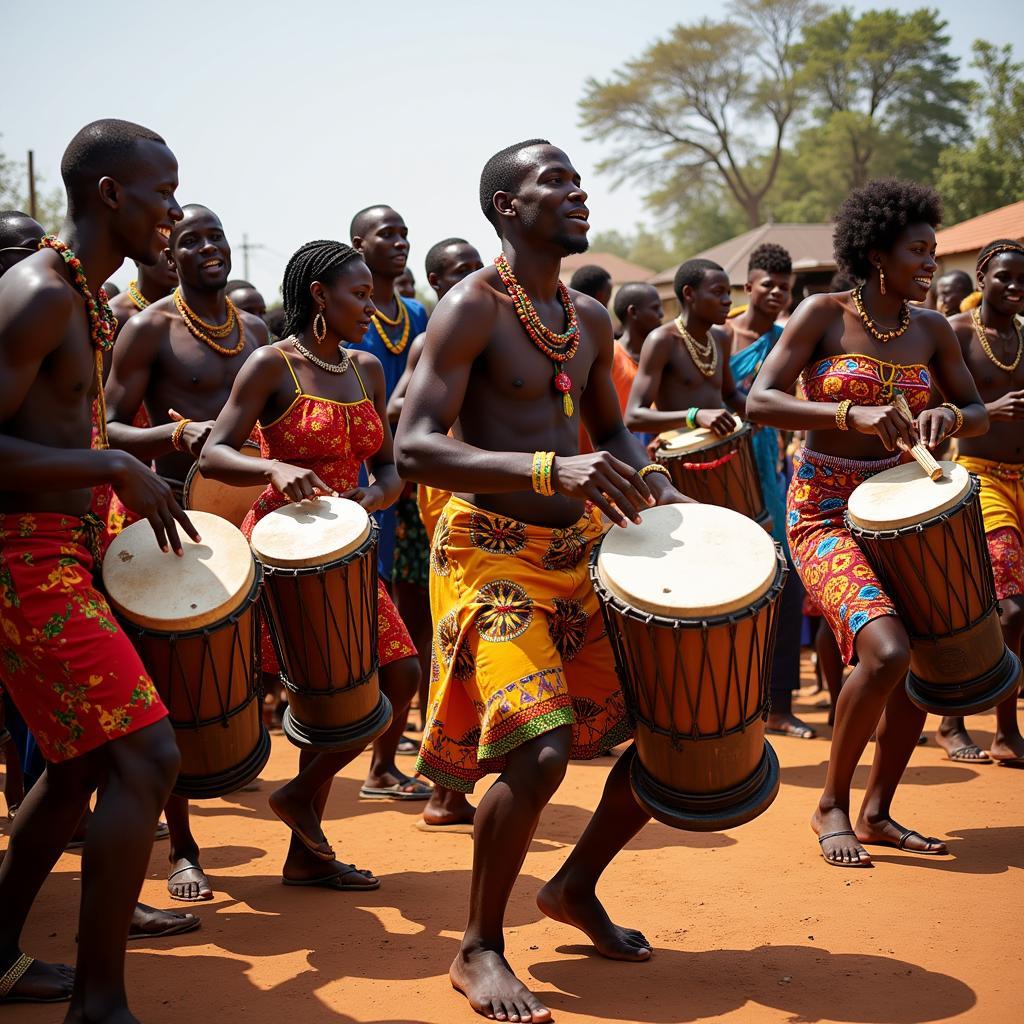African Bovine: A Closer Look at the Continent’s Cattle
African Bovine encompasses a diverse range of cattle breeds that have adapted to the continent’s varied climates and landscapes. From the hardy N’Dama cattle of West Africa, known for their resistance to trypanosomiasis, to the majestic Ankole-Watusi cattle of East Africa, prized for their enormous horns, African bovine plays a crucial role in the lives of millions of people. These animals are not merely livestock; they are deeply intertwined with the cultural, economic, and spiritual fabric of numerous African societies.
The Importance of African Bovine
African bovine are primarily raised for their meat, milk, and hides. Cattle are a significant source of protein and other essential nutrients for many communities, while their milk is used to produce a variety of dairy products. Hides are transformed into leather, used for crafting everything from clothing and footwear to traditional drums and shields. Beyond these practical uses, cattle hold immense cultural significance.
In many African cultures, cattle represent wealth, status, and prosperity. They are often given as dowry, used in traditional ceremonies, and even feature prominently in folklore and mythology. The size and health of a person’s herd can be a direct reflection of their social standing within the community.
Challenges Facing African Bovine
Despite their importance, African bovine populations face a number of challenges. Climate change, leading to prolonged droughts and unpredictable rainfall patterns, has severely impacted grazing lands. This has resulted in reduced water and food availability, negatively impacting the health and productivity of cattle.
Diseases, such as East Coast fever and foot-and-mouth disease, also pose a significant threat. Limited access to veterinary services in some regions makes it difficult to control and prevent outbreaks, leading to significant economic losses for farmers and herders.
Conservation and Sustainable Management
Recognizing the importance of African bovine, efforts are underway to conserve existing breeds and promote sustainable management practices. Organizations and researchers are working to improve breeding programs, enhance disease resistance, and develop strategies to mitigate the impacts of climate change.
African buffalo facts highlight the need for conservation efforts. By understanding the specific needs and challenges faced by different cattle breeds, we can better protect these valuable animals for future generations.
Looking Ahead: The Future of African Bovine
The future of African bovine is intertwined with the future of the continent itself. As Africa’s population continues to grow, so too will the demand for livestock products. Finding sustainable ways to meet this demand, while also addressing the challenges of climate change and disease, will be crucial.
African buffalo population and their distribution across the continent are key factors to consider in conservation and management strategies. By investing in research, promoting sustainable practices, and empowering local communities, we can ensure that African bovine continue to play their vital role in the lives and livelihoods of millions of people across the continent.
FAQ:
Q: What is the most common breed of African bovine?
A: There isn’t one single most common breed across the entire continent. Breeds vary greatly by region and are adapted to specific local conditions.
Q: Are African cattle breeds used for dairy as well as meat?
A: Yes, many African cattle breeds are dual-purpose, raised for both milk and meat production.
Q: How does climate change impact African bovine?
A: Climate change leads to more frequent and severe droughts, reducing grazing land and water availability, thus impacting cattle health and productivity.
Need More Information?
For more information on African wildlife, you can read about African buffalo extinction status and the factors contributing to it.
Want to learn about a specific breed? Explore the differences between African Cape buffalos and other breeds found across the continent in our African buffalo Africa section.
Get in Touch
Need assistance or have more questions? Contact us:
Phone: +255768904061
Email: kaka.mag@gmail.com
Address: Mbarali DC Mawindi, Kangaga, Tanzania
Our dedicated customer support team is available 24/7 to assist you.


